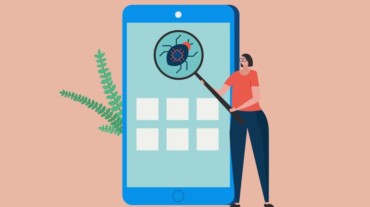
The way we have been dealing with the covid-19 pandemic is based on the information that the scientific community has been sharing with us. For instance, we sanitise our grocery shopping, doors, and even currency notes—because we know that the SARS-CoV-2 virus can survive on these surfaces for days.
But here’s a shocker that none of us saw coming: the covid-19 causing virus can linger on certain surfaces close to a month!
According to an Australian study, the novel coronavirus can survive on banknotes, glass, and stainless steel for up to 28 days—much longer than the flu virus.
Findings from the study done by Australia’s national science agency, CSIRO, appear to show that in a very controlled environment the virus remained infectious for longer than other studies have found.
CSIRO researchers found that at 20 degrees celsius, the SARS-CoV-2 virus remained infectious for 28 days on smooth surfaces such as plastic banknotes and glass found on mobile phone screens. The study was published in Virology Journal.
By comparison, Influenza A virus has been found to survive on surfaces for 17 days.
“It really reinforces the importance of washing hands and sanitising where possible and certainly wiping down surfaces that may be in contact with the virus,” said the study’s lead researcher Shane Riddell.

The study involved drying virus in an artificial mucus on a range of surfaces at concentrations similar to samples from covid-19 patients and then recovering the virus over a month.
Experiments done at 20, 30 and 40 degrees Celsius showed the virus survived longer at cooler temperatures, longer on smooth surfaces than on complex surfaces such as cotton, and longer on paper banknotes than on plastic banknotes.
Also, read: Covid-19 doesn’t spread easily via contaminated surfaces: CDC
Select Topics of your interest and let us customize your feed.
PERSONALISE NOWAll the experiments were done in the dark to remove the impact of ultraviolet light, as research has shown direct sunlight can kill the virus.
“So in the real world results would likely be shorter than what we were able to show,” Riddell told Reuters.
Researchers said given that proteins and fats in body fluids can also sharply increase virus survival times, their study may help explain the apparent persistence and spread of the virus in cool environments like meat-packing facilities.
Australia has fared much better than most other rich nations in combating covid-19, with a total of about 27,000 infections and 898 deaths in a population of 25 million.